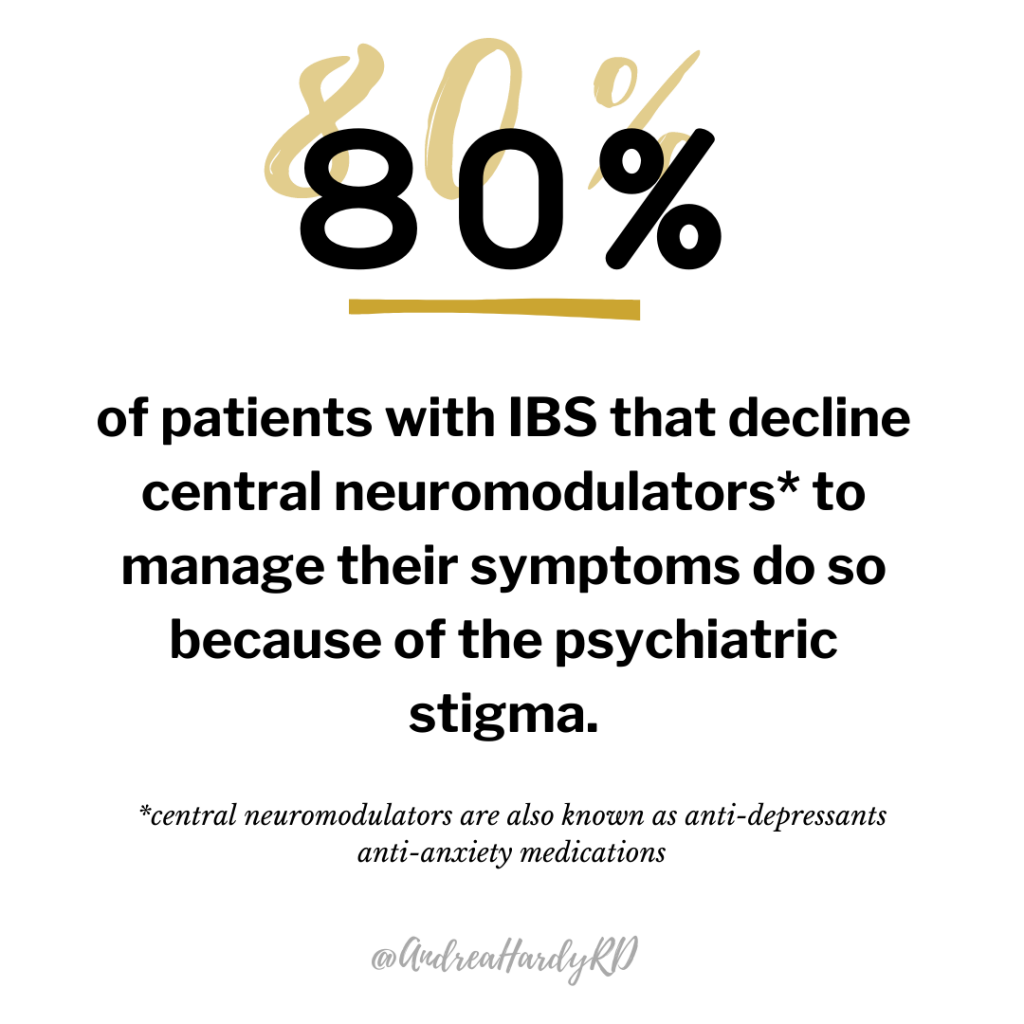If you could take some medicine to help your disease – would you? On Instagram @AndreaHardyRD, I talk all about how the stigma around psychiatric disease leads patients with IBS to forgo some valuable treatment options.
Anti-depressants to manage IBS – yay or nay?
SSRI’s, TCA’s, and SNRI’s all have impacts on the gut that can be harnessed in IBS management.
The problem? Stigma. In my opinion, the stigma around an IBS diagnosis being ‘all in your head’ still lingers.
So when patients hear:
‘we can use an anti-depressant to manage IBS’
what they REALLY hear is:
‘we think you’re depressed or anxious, and treating it will make your IBS go away’.
Which is NOT the case!
When I spend time assessing patients beliefs around these meds, previous experiences, and general understanding it tends to be low.
What that tells me is we need to explain mechanism of action, and risk/benefit better so we can decide who might actually benefit from this class of drugs.
These drugs primarily work by increasing serotonin, dopamine, and/or norepinephrine in the gut’s nervous system to:
✅Regulate movement or motility of the gut (speeding up (SSRI’s )or slowing down (TCA’s))
✅ reduce visceral hypersensitivity – the sensation of pain & discomfort upon intestinal stretch or normal digestion (SNRI’s & TCA’s)
✅ turn down pain signals that are communicated through the gut-brain axis (SNRI’s & TCA’s)
❓ and possibly – may also stimulate nerve cell growth over time to help restore normal communication between the brain & the gut!
Typically, these medications are used in much lower doses than to treat anxiety & depression – which often means, less risk of side effects! (Though there may be times with certain medications or in certain symptoms where it may be appropriate to consider a higher dose)
????Bottom line????
IBS isn’t ALL in your head, but it does involve inappropriate communication between your gut and your brain, and there are tools to help!
These medications could be considered when diet and lifestyle intervention is inadequate or inappropriate, and can be VERY effective for their known actions on the digestive tract and it’s nervous system.
Talk with your health care team and GI doc to determine if they could be a tool in your IBS management tool kit!
DOI: 10.14309/01.ajg.0000591480.04691.44
DOI: 10.1038/ajg.2017.57


Recent Comments